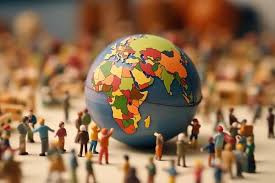- Teacher: FABIEN NKURIKIYIMANA

Human Geography explores the complex relationships between people, places, and environments across the globe. This module introduces students to the spatial patterns and processes that shape human experience, including population distribution, migration, urbanization, culture, economic development, and political organization. By integrating social, cultural, economic, and environmental perspectives, students learn to analyze how human activities influence—and are influenced by—the geographical landscape. The course emphasizes critical thinking, data analysis, and map interpretation to understand global issues such as resource allocation, inequality, globalization, and environmental change. Upon completion, students will be equipped with the skills to evaluate contemporary challenges from a geographic perspective and apply spatial reasoning to real-world problems.
- Teacher: Dr. James OWINO
